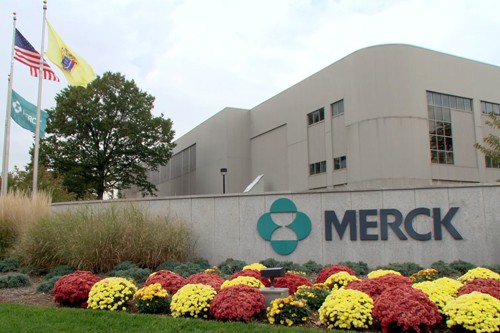
Merck & Co. has announced positive early results from its phase 3 trial of Keytruda as a neoadjuvant treatment for patients with triple-negative breast cancer (TNBC).
The US pharma company has revealed that its Keynote-522 study, which is investigating the anti-PD-1 therapy in combination with chemotherapy, met one of the dual-primary endpoints following the neoadjuvant part of the neoadjuvant/adjuvant study.
The promising results will help Keytruda keep in touch with Roche’s Tecentriq, which is the leader in TNBC, but trial results expected later this year will determine if it can mount a serious challenge in first line use.
Interim analysis by the independent Data Monitoring Committee (DMC) showed that Keytruda demonstrated a statistically significant improvement in pathological complete response (pCR) rates when compared to chemotherapy alone.
The pCR rate is used to describe a lack of signs of cancer in tissue samples, analysed after the completion of neoadjuvant therapy and definitive surgery. In this trial, Keytruda showed improvement regardless of PD-1 status of patients.
These results follow a setback for Keytruda from earlier this year, in which monotherapy failed to show benefits compared to standard chemotherapy in second line treatment of advanced triple negative breast cancer.
Roche’s Tecentriq became the first immuno-oncology to gain approval in triple negative breast cancer in March this year, when the FDA approved it as a first line treatment in patients with unresectable locally advanced or metastatic triple-negative breast cancer (TNBC) and whose tumours express PD-L1.
The results are a big boost after the failure of its second line treatment trial, but analysts say that neoadjuvant is currently a small opportunity in triple negative therapy.
“These findings from this innovatively designed trial with Keytruda mark the first time an anti-PD-1 therapy plus chemotherapy has demonstrated a statistically significant improvement in pathological complete response rate as a neoadjuvant, or pre-surgical, segment of treatment for triple-negative breast cancer,” said Dr Roger Perlmutter, president of Merck Research Laboratories.
The company says it will discuss the findings with regulators, and will present full results at an upcoming medical congress.
The trial will continue, and will also evaluate Keytruda against the other dual-primary endpoint of event-free survival, in which the drug will be compared with placebo as adjuvant therapy in patients with TNBC.
This will see if the combination of Keytruda with chemotherapy will delay disease progression and death – the patients involved in the trial will receive either this combination or chemotherapy alone before surgery, and then the Keytruda combination or placebo after surgery.
The trial which will determine if Keytruda can really mount a challenge to Tecentriq is Keynote-355, as it looks at Keytruda plus chemo in the first line setting. The read-out from this trial is expected in December this year.
Merck has also just unveiled its Q2 results, which show that Keytruda is still powering ahead – in the last three months it earned $2.63bn, up 58% over the same period last year.
Meanwhile, Keytruda is continuing to advance in other indications. In Europe, the Committee for Medicinal Products for Human Use (CHMP) has recommended Keytruda in combination with Inlyta (axitinib) as a first-line treatment for advanced renal cell carcinoma.




